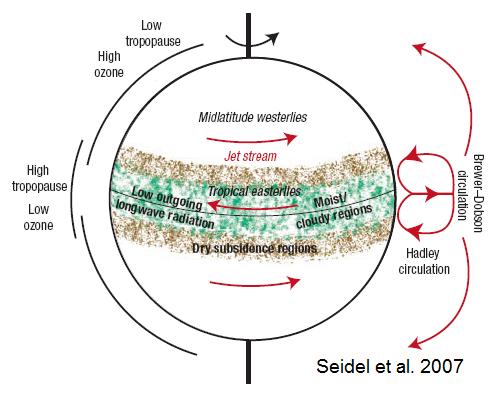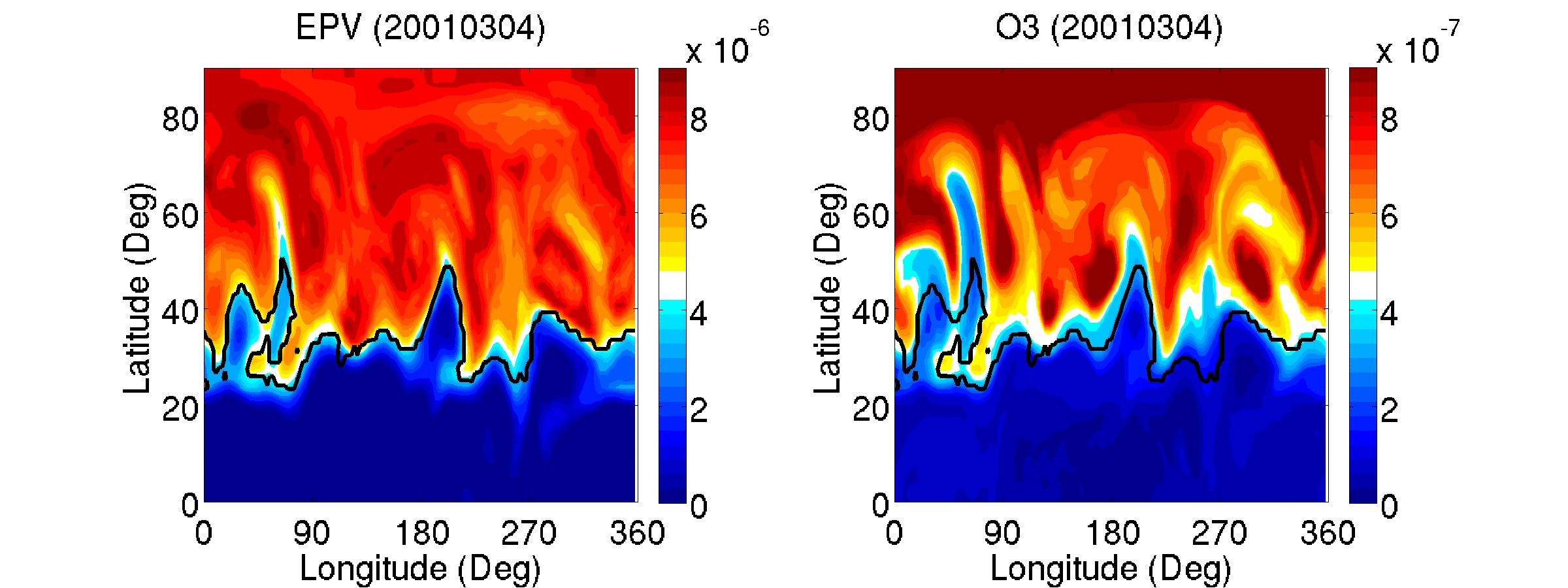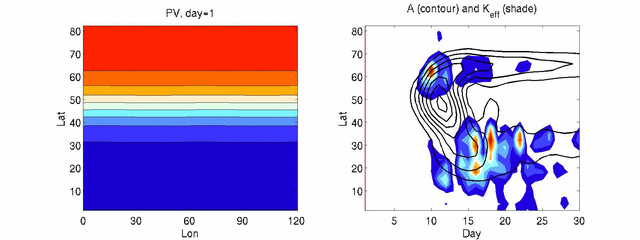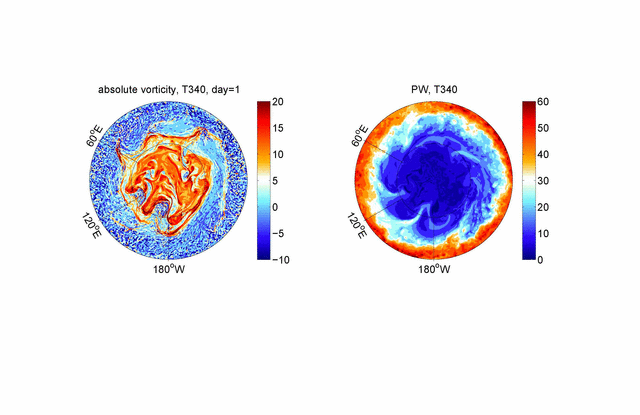- Theory and modeling of the global circulation of the atmosphere
- Climate change and its regional impact
- Transport and mixing in the atmosphere
Research Interests
Currently, we are working on understanding atmospheric global circulation and transport responses under climate change. Below is a schematic of the global circulation of the atmosphere. Climate models generally predict a poleward shift of jet streams, an expansion of the Hadley cell circulation, and the acceleration of the Brewer-Dobson circulation under global warming. Such circulation changes can alter the global distribution of wind, rainfall, and chemical constituents (i.e., ozone) in the future. Our primary tool is a hierachy of global circulation models (i.e., GFDL Flexible Modeling System (FMS)).

A fundamental issue in our research is transport and mixing in the macro-turbulence of the atmosphere. Here is a WACCM simulation with specified reanalysis winds (courtesy of Qi Tang and Huang Yang) for the Ertel's potential vorticity (PV) (left) and O3 mixing ratio (right) at 200 hPa during March 2001. The black contour denotes the WMO tropopause.

In comparison, below is an idealized simulation of a typical life cycle of extratropical storms (note only 0-120 degrees longitude is shown). On the left is the PV in the upper troposphere, and the sharp meridional (latitudinal) gradient indicates a jet stream. On the right are two different measures of the meridional meandering of the jet stream on different days of the life cycle. Wave activity (contour) quantifies the magnitude of the meridional displacement and effective diffusivity (shade) quantifies the exchange rate of air mass across the jet due to down-scale cascading and cut-offs. See a recent discussion in Chen and Plumb 2014.

Also see the simulations of absolute vorticity and precipitable water in an aquaplanet model at T340 resolution below in a polar stereographic projection (courtesy of Fuyu Li). These filaments and cutoffs are increasingly visible at higher resolution.

Job Opportunities
We often have research opportunities in climate dynamics for undergraduate, graduate students or postdoctoral fellows. Please contact me (gchen at cornell email) with your research interests and a brief CV.